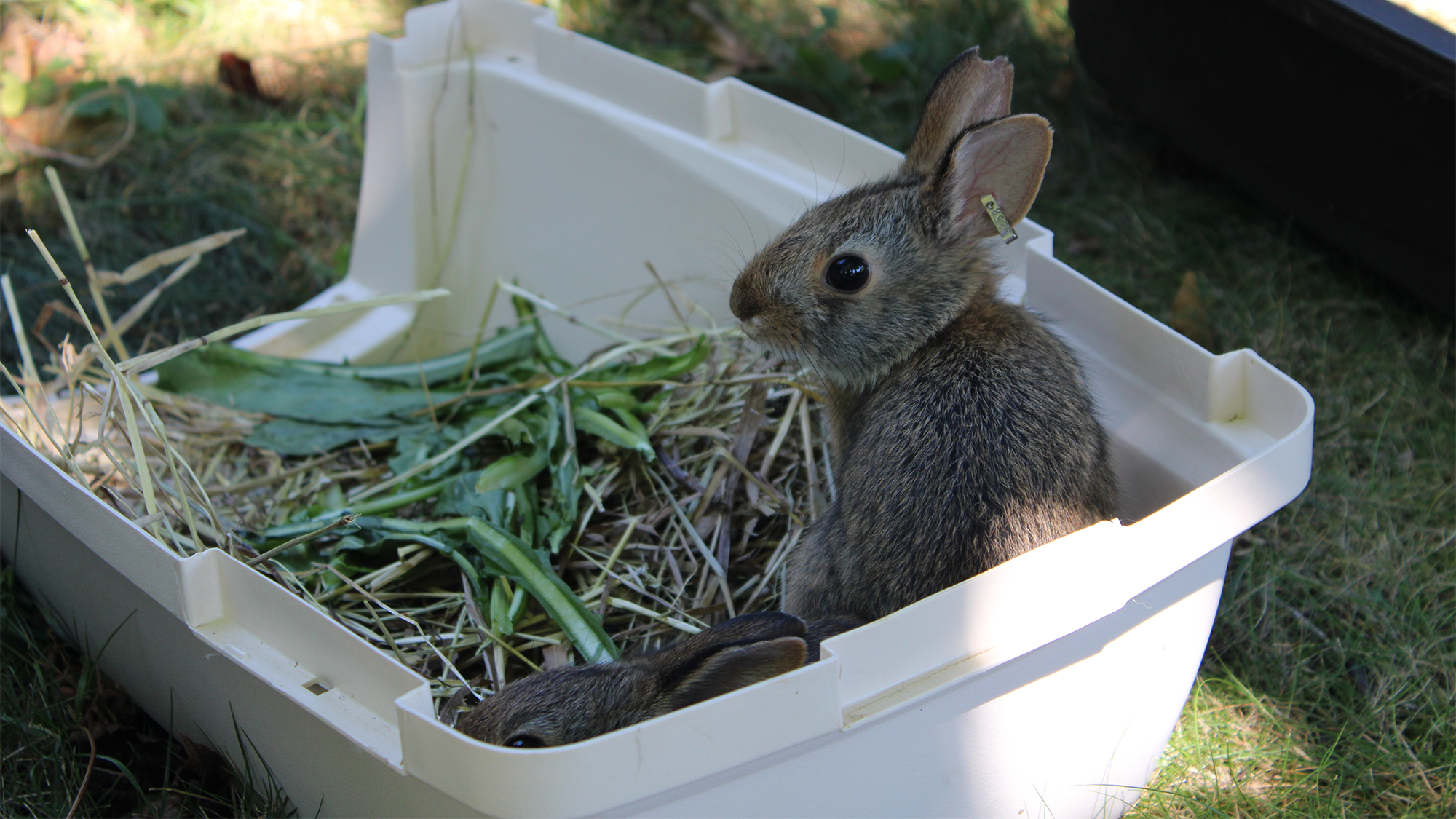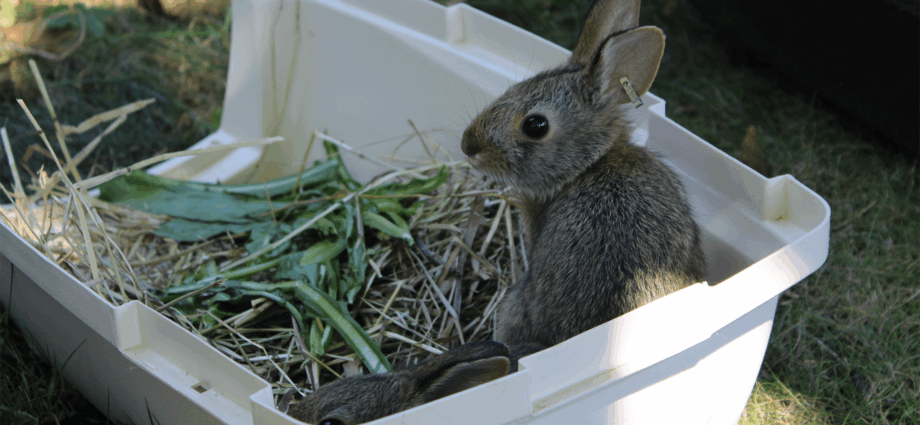
Image: US Fish & Wildlife Service.
Get the Popular Science daily newsletter💡
Breakthroughs, discoveries, and DIY tips sent every weekday.
The grey-brown New England cottontail (Sylvilagus transitionalis)—New England’s only native rabbit—once thrived throughout the northeastern United States. In recent decades, however, the species’ population has plummeted due to habitat loss, and its range has diminished by over 80 percent since the 1960s. The International Union for Conservation of Nature (IUCN) lists them as vulnerable. What’s more, New England cottontails are often outcompeted by the non-native eastern cottontail (Sylvilagus floridanus).
In an effort to support this vulnerable species, the Queens Zoo in New York City just released 15 adorable young New England cottontail rabbits in forests in Maine and Massachusetts.
“Our effort to breed these rabbits to help ensure they don’t go extinct show the great value of zoos to the conservation of wildlife, especially for species facing extinction,” Nicole Schepis, a wild animal keeper at the Queens Zoo who works with the rabbits, said in a statement.

The baby rabbits, or kits, were all born at the Queens Zoo between May and July of this year. Later this summer, they were microchipped and treated with flea and tick medication. On August 22, six were released in the Fort Foster Park in Kittery, Maine, four went to the Rachel Carson National Wildlife Refuge also in Maine, and five were placed on Thacher Island off the coast of Rockport, Massachusetts.
The kits’ parents were bred in an area of the Queens Zoo away from the public’s eye with special, quiet habitats made to enable females to pick their mates and created to allow for courtship and nesting behavior as it would take place in the wild. The staff interacted with the rabbits in the breeding program as little as possible, to give them the best chances of surviving in the wild.
“This release marks another important step in the ongoing recovery of the New England cottontail,” said Donna-Mae Butcher, Queens Zoo assistant curator of animals. “By working together with our partners, we are helping to ensure that this native rabbit has a future.”
New England cottontail kits from Queens Zoo have previously also been released in New Hampshire and Rhode Island. Since 2016, the zoo has provided 145 rabbits to the New England cottontail conservation breeding program. They plan to breed them again next year.

Shop Amazon’s Prime Day sale
We’ve hand-picked dozens of PopSci-approved deals on tools, electronics, and more. Grab them before they’re gone.

